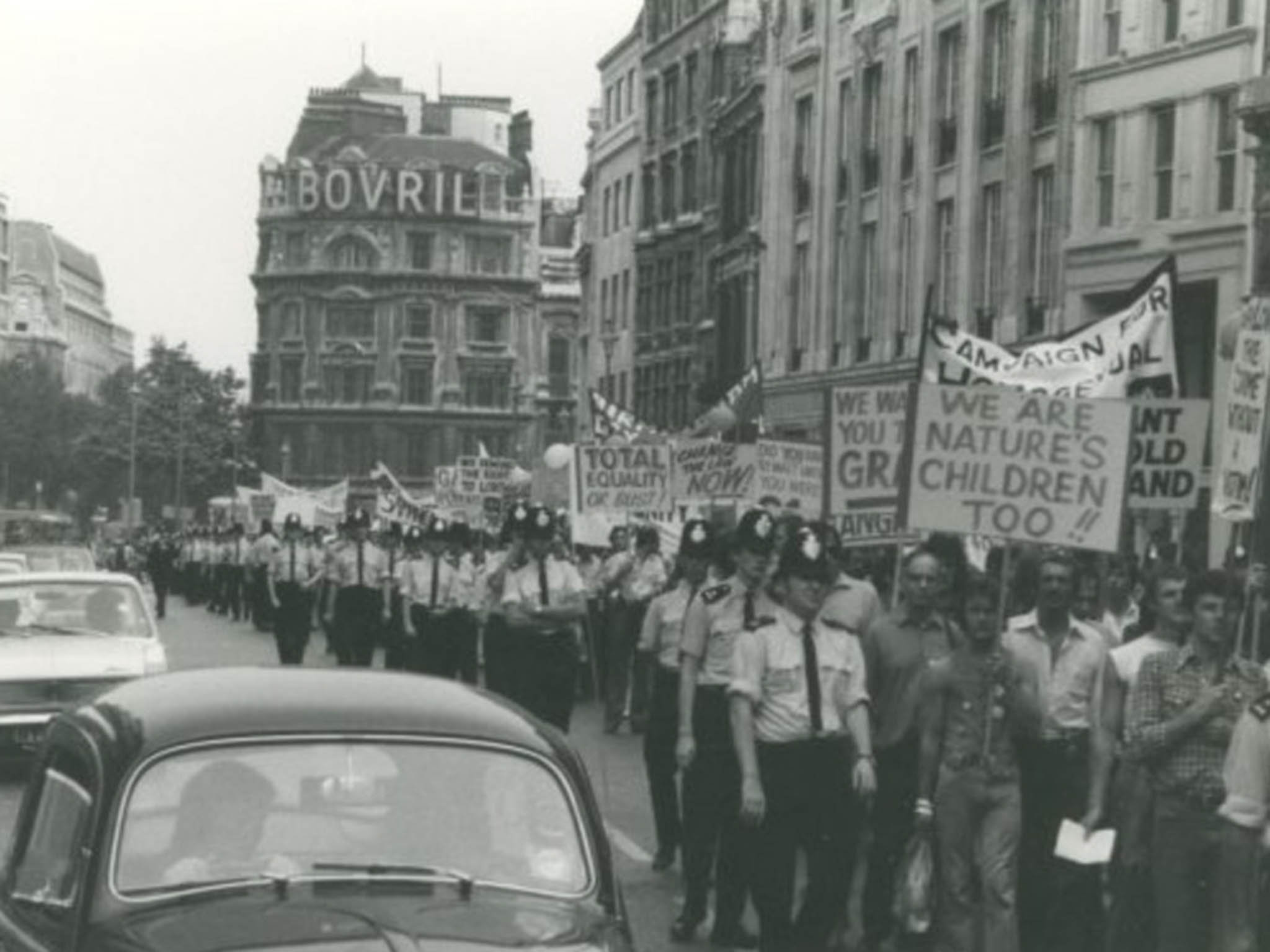Why UK law still caters to the norms of public disgust towards homosexuality
Even the Wolfenden report cited the need to protect the public from that which disgusted them

We tend to assume that law is objective and disembodied, but the story of the decriminalisation of homosexuality in the UK shows that it is in fact, like the people who create it, an emotional creature: animated by visceral human feelings – and as far as sexuality is concerned, the chief emotion at work is often disgust.
You don’t have to look very hard to see how much it was disgust, not a concern for morality or justice, that shaped the laws governing homosexual activity. In fact, in the UK, homosexuality was long deemed so perverse that to even speak of it in public would stain your character.
Criminal punishments for homosexual activity, which included the death penalty, thrived on disgust for centuries. Introduced by Henry VIII in 1533, the Buggery Act 1533 criminalised the “abominable vice” of anal sex between men. In his commentaries on the common law of England published in 1765, jurist William Blackstone described buggery as an “offence of so dark a nature” that “the very mention of [it] is a disgrace to human nature”.
Colonial statutes (which are still in effect in a number of Commonwealth countries today) referred to sex between men as an “act against the order of nature”.
In 1895, writer Oscar Wilde was put on trial for “gross indecency”, a statutory offence introduced in 1885 to punish individuals who engaged in same-sex relationships, without having to prove they had anal sex. In sentencing Wilde for gross indecency, Justice Wills noted:
“The crime of which you have been convicted is so bad that one has to put stern restraint upon one’s self to prevent one’s self from describing, in language which I would rather not use, the sentiments which must rise in the breast of every man of honour who has heard the details of these two horrible trials.”
Disgust, again, was the animating principle. In writing about the Wilde trial, philosopher and legal scholar Martha Nussbaum observes that disgust was not simply an excess or unintended consequence of prosecuting sexual offences; it was central to it. Criminal penalties were contingent on the extent to which the person, and the activity they engaged in, could elicit public disgust.
Dealing with disgust
Unsurprisingly, then, the process of decriminalising homosexuality that began in the mid-20th century involved rethinking and redirecting disgust in the law. Following the convictions of famous British citizens such as Alan Turing and Lord Montagu, the UK government commissioned Sir John Wolfenden in 1954 to head up an inquiry to consider the appropriateness of criminalising homosexuality and the treatment of those who were convicted as a result.
In its powerful and widely celebrated report, the Wolfenden Committee noted that revulsion towards homosexuals was an insufficient basis to criminalise their behaviour, since it breached their right to privacy: “Moral conviction or instinctive feeling, however strong, is not a valid basis for overriding the individual’s privacy.”
On paper, this was a breakthrough. But instead of liberating homosexuality, the notion of protecting “privacy” became a legal container for public disgust.
The committee also noted that by confining homosexuality to the bedroom, it could be zoned away to a space where the public would not have to bear the disgust of witnessing it. In fact, the committee emphasised the need to protect children from this “corrupting” vice; it recommended this be done by setting the age of consent for homosexual activity at 21, several years above the heterosexual boundary.
Ten years after the report, parliament gave effect to these recommendations when it passed the Sexual Offences Act 1967 and partially decriminalised homosexuality in England and Wales. Criminal law still prohibited sexual activity between men aged under 21, and those who had (group) sex in the company of other adults.
Homosexuality, in short, was not cleansed of public disgust. Rather, legal notions of privacy allowed the state to contain homosexuality in a way that would avoid offending the moral sensibilities of a “normal” (read: heterosexual) public. Disgusting sex was safely confined to the private sphere.
Happily ever after?
Over the last 50 years, the British gay rights landscape has been dramatically reshaped. Same-sex couples have gone from being revolting “outlaws” to dignified “in-laws”. They can have anal sex at the same age as those who can have vaginal-penile intercourse; they can get married and have children.
Many of us who are directly affected sentimentalise these as milestones on a march towards a happy ending – a world where we are no longer abused because of who we are or what we do.
That’s perfectly understandable, but we should treat this legalistic narrative of progress with caution. Disgust, after all, is still used to regulate sexual minorities.
Various laws still police public sex and sex work. Thanks largely to the judgement in the notorious Operation Spanner trial of 1990, people who enjoy consensual sadomasochism risk prosecution when their kinky activities result in what the law deems “actual bodily harm”. Those who find kinship outside the conventional couple remain on the peripheries of legal recognition.
The law is still used to stigmatise and punish identities and forms of intimacy that don’t conform to the mainstream’s romanticised expectations. Yes, it’s right to celebrate the legal progress in this area over the last five decades; many of us who would once have been kept in the shadows no longer think of our desires as disgusting or shameful.
But it must be remembered that this was made possible by changes in public emotion, not just the law – and if we want to see further progress, we must ask ourselves why some sexualities still disgust us.
Senthorun Raj is a lecturer at Keele Law School, Keele University. This article first appeared on The Conversation (theconversation.com)
Join our commenting forum
Join thought-provoking conversations, follow other Independent readers and see their replies
Comments